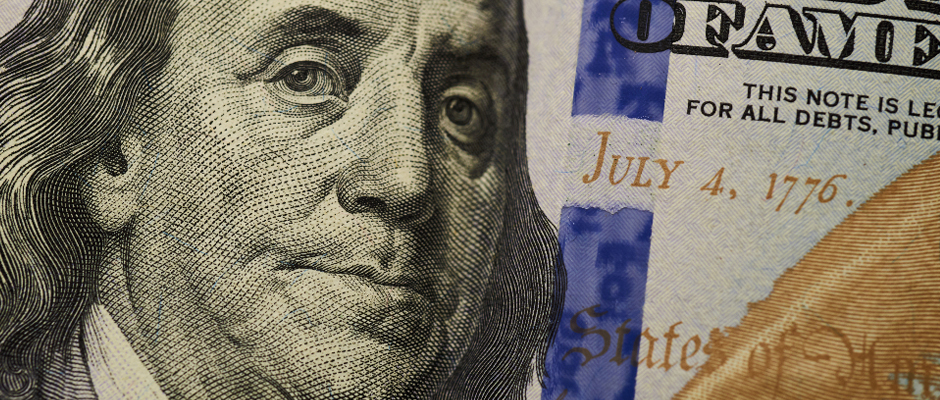Does Money Make the Leader?
Recently, I was having a conversation about the making of great leaders. During that conversation, I was told: “I don’t have enough money to be a leader.” That comment confused me at first. It got me thinking about the prospect of “creating” a leader and whether money can play a part.
While probably not the most scientific way to discover this, I randomly sampled various well-known leaders from multiple industries for a simple comparison. I found that by visually laying out the attributes of the various leaders and comparing them against one another, I was able to find some basic similarities.
There appear to be at least three major elements that often collide to create the opportunity for leadership: wealth/means, a problem/struggle, and an education/idea of resolution of the problem. But again, this was a random sampling of some fairly high-profile leaders. So then my question was, “Are all three necessary, or can having only one or two provide the opportunity as well?” Let’s take a look.
An essential element needed for leadership is having a struggle or a cause. A rise to power appears to be much more substantial when there is a greater cause that is felt among the majority of the followers, such as oppression, tyranny, or some other kind of heavy burden placed upon the people for what they likely deem to be “no good reason.” When this is in place, leadership seems to emerge – even if it takes some time.
The second crucial element appears to be education, “special knowledge,” or some resolution idea. This plays into several different areas, such as being able to relay ideas to others, defining the problem, sharing the vision of resolution with the masses coherently, having an abundance of information that others do not, or acquiring and interpreting ideas from others that they may have studied. It is said that great leaders all have excessive reading in common; this also aligns with my assessment. The idea might be that “knowledge is power.” Education or some kind of “special knowledge” appears to be vital. I liken it to the idea that without the necessary contexts, you likely wouldn’t have very good ideas to fix the problems.
The third attribute regarding this experiment is being wealthy or being surrounded by the wealthy. After all, many leaders sure do have a lot of money or have the ears of those who do. I suppose this makes sense. People without money seem to believe that people with money have answers and perhaps even a better way of going about things. Plus, money makes it easier to be seen. In fact, Dan Wesley of Visual Economics said it best: “Getting elected often takes a lot of personal wealth to publicize the candidate and purchase campaign advertisements and materials. This can result in wealthy politicians acquiring many important positions of power. In many countries, getting into a position of power often results in building great personal wealth. The result of both these factors is that there are politicians worldwide that have both wealth and power.” (Wesley, 2009)
However, I do not believe one cannot rise to power if they are not wealthy. In my research, I have found plenty of people without money who have risen to power and wealth. Jeff Bezos, for example, was the son of a teen mom. As a child, Oprah would have to wear potato sacks when their family couldn’t afford clothes. Even Abraham Lincoln grew up in poverty and had to educate himself – and on and on and on. That being said, we can all agree that money may not be a necessity, but it sure can make that rise easier. Of course, if you get into some power position, you will likely be surrounded by those with money anyway and will eventually fall into some sort of monetary success.
Money is not entirely necessary if you are motivated and properly trained. History is riddled with poor individuals who became extremely powerful when a struggle was available and when they had ideas of resolution. I enjoy studying colonial history, so perhaps the story of Ben Franklin might be appropriate here. Many don’t know that long before Franklin became the success that he was, he had a bit of a rocky start. He was forced to drop out of school and was an indentured servant for about nine years. Consider that turnaround. Perhaps this explains his comments regarding the management of the poor in November of 1766.
Ultimately, when I think about the ascension to leadership holistically, I believe that having a problem is critical, having a solution helps and the means (money) to impact that problem is nothing more than the icing. You don’t need money to be a good leader; good leaders don’t always get the money. My advice is to focus on ideas after identifying the problem. Remember that throwing money at a problem isn’t always the answer and that the one with money may not always have the best ideas.
Did you enjoy this article? You might also like “30 Great Leadership Books for Leadership Pros.”
Resources:
Wesley, D. (2009, May 07). The wealth of world leaders. Retrieved from http://visualeconomics.creditloan.com/the-wealth-of-world-leaders/




